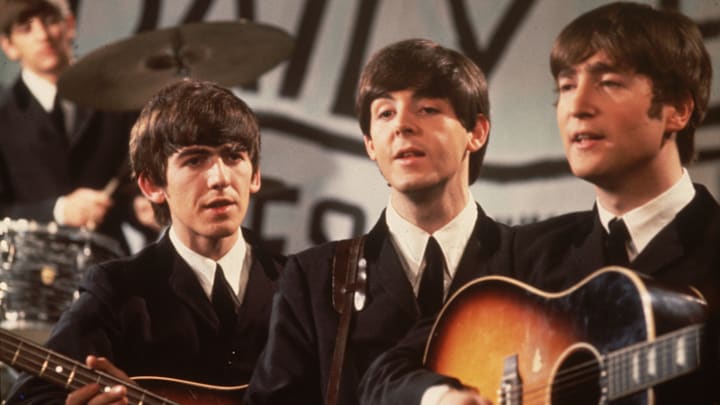Many diehard Beatles fans know that the bass was not Paul McCartney's chosen instrument. He only took it up because the group needed a bass player, and no one else wanted to do it. However, Paul soon realized the power that came with being The Beatles' bass player.
Why did Paul McCartney become The Beatles' bass player?
In The Beatles' early days, George Harrison, John Lennon, and Paul McCartney were the group's guitarists, and John's friend Stuart Sutcliffe played bass, although not very well. They often told him to play facing away from the audience so no one would see he couldn't play.
Paul's position in the band changed when the band started their residency in Hamburg, Germany. Sutcliffe fell in love with the group's friend, Astrid Kirchherr, and decided to leave the group, which left The Beatles without a bass player.
In his book The Lyrics: 1956 to the Present, Paul wrote, "So we were now without a bass player. We couldn't have three guitars and no bass. Nobody wanted to be the bass player in those days because it was always the fat guy playing bass. There seemed to be some sort of stigma attached to it."
Paul's cheap guitar eventually broke, and he became the band's piano player before Sutcliffe officially left the band. Then, when Sutcliffe quit, Paul reluctantly jumped in his place. He didn't like that the instrument wasn't as glamorous as the guitar and didn't like composing on the bass. Paul only played it when the band was recording or performing.
However, he soon learned that the instrument gave him more power than he initially realized.
Paul McCartney loved the power that came with being The Beatles' bass player
Eventually, Paul warmed to the instrument and realized that being The Beatles' bass player gave him a lot of power. He could control where the group went by keeping a steady rhythm.
"From the word go, once I got over the fact that I was lumbered with the bass [laughs], I did get quite proud to be a bass player, quite proud of the idea," Paul told Music Radar. "Once you realized the control you had over the band, you were in control. They can't go anywhere, man. Ha! Power!"
Paul then started to identify with other bass players. One of the best moments came when The Beatles met Elvis Presley. The King of Rock 'n' Roll was trying to learn bass, and Paul got to show him a few things.
"So I was very proud of being the bass player," Paul said. "But as it went on and I got into that melodic thing, that was probably the peak of my interest."
Paul revolutionized the bass
The "Yesterday" singer became one of rock 'n' roll's best bass players, even though he didn't want to take it up initially. He said he "nicked" a lot from James Jamerson, who he shares credit for making the bass popular.
"That was the thing, though, it did become a lot more of a funky instrument: it was becoming almost like a drum, the rhythmic possibilities," Paul explained. "It was very exciting, that, and it also gave me something to keep me interested.
"The danger with bass is that everybody else has got the interesting jobs and you’re just the last guy to get a part, and literally you get the root notes, two in a bar. But actually… now, I quite like that, I like the simplicity. Sort of country and western bass playing."
Paul had to be creative to complicate his bass playing, but eventually, his playing became melodic. Some of Paul's best bass work appears in The Beatles' "Paperback Writer," "Lucy in the Sky With Diamonds," and "Come Together."
Ultimately, Paul becoming The Beatles' bass player was meant to be, whether he learned to love the power that came with it or not.
Stairway to 11 is dedicated to providing news, reviews, and original content covering classic rock, oldies, and old-school music of all genres. This site also serves as a community for like-minded fans to catch up on the latest news and discuss their passion. Be sure to follow us on Facebook and Twitter.
